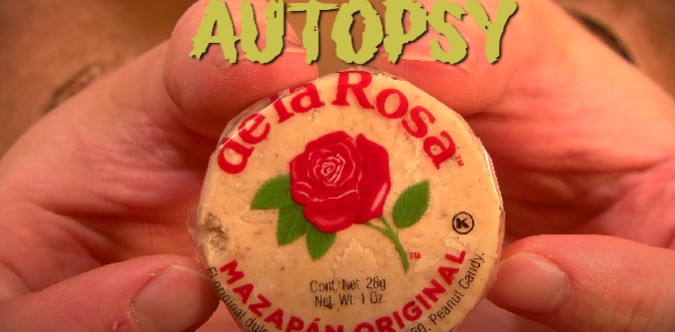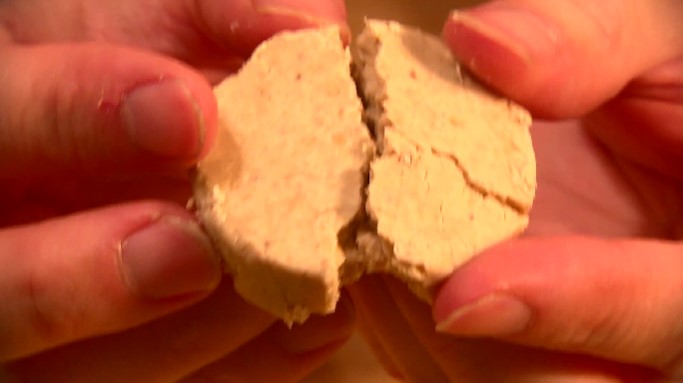Mazapan Nutrition Facts
De La Rosa Mazapan Nutrition Facts reveal a world where indulgence meets nutrition. In this comprehensive exploration, we delve into the unique blend of flavors and nutritional values of Mazapan, a beloved Mexican peanut candy. From its caloric content to the essential vitamins and minerals it offers, join us on a journey to understand why Mazapan is more than just a sweet treat.
Mazapan, a traditional Mexican candy made primarily from ground peanuts and sugar, is a delightful treat enjoyed by many. Often recognized for its crumbly texture and rich nutty flavor, Mazapan is not just a sweet indulgence but also offers a glimpse into its nutritional content. Whether you’re enjoying a piece for a quick snack or curious about its nutritional impact, this guide will provide a comprehensive breakdown of Mazapan nutrition facts.

Introduction
Mazapan Nutrition Facts reveal a fascinating balance between taste and nutrition. This beloved treat, while often consumed as a dessert or snack, offers more than just sweetness. Understanding its nutritional profile can help you make informed decisions about including it in your diet. In this article, we will delve into the calories, macronutrients, vitamins, and minerals found in Mazapan, focusing on the popular De La Rosa brand. Whether you’re a long-time fan or new to this Mexican confection, this guide will shed light on what you’re really consuming with each bite.
Nutritional Overview of Mazapan
Mazapan is known for its high energy content, making it a quick source of fuel. Below is a detailed look at the nutritional components per serving (28g, which is approximately one piece):
- Calories: 130 kcal
- Total Fat: 5g (6% Daily Value)
- Saturated Fat: 1g (5% DV)
- Trans Fat: 0g
- Cholesterol: 0mg (0% DV)
- Sodium: 5mg (0.2% DV)
- Total Carbohydrates: 18g (7% DV)
- Dietary Fiber: 1g (4% DV)
- Sugars: 16g
- Protein: 3g (6% DV)
Vitamins and Minerals
Mazapan also contains small amounts of essential vitamins and minerals, though it is not a significant source of most nutrients. For instance:
- Calcium: 0mg (0% DV)
- Iron: 0mg (0% DV)
- Potassium: Not listed
This nutritional profile suggests that while Mazapan is rich in carbohydrates and fats, it is not particularly nutrient-dense in terms of vitamins and minerals.
Detailed Breakdown (50g Serving)
For a larger serving size of 50g, which may be more typical depending on how Mazapan is consumed, the nutritional values increase correspondingly:
- Calories: 240 kcal
- Total Fat: 9g (12% DV)
- Saturated Fat: 1g (5% DV)
- Trans Fat: 0g
- Cholesterol: 0mg (0% DV)
- Sodium: 4mg (0.2% DV)
- Total Carbohydrates: 36g (13% DV)
- Dietary Fiber: 2g (7% DV)
- Sugars: 29g
- Protein: 4g (8% DV)

Frequently Asked Questions
What are the main ingredients in Mazapan?
Mazapan primarily consists of ground peanuts and sugar, which contribute to its rich, nutty flavor and crumbly texture.
Is Mazapan gluten-free?
Yes, traditional Mazapan made from peanuts and sugar is typically gluten-free. However, always check the packaging for any potential cross-contamination if you have gluten sensitivity.
How does Mazapan fit into a balanced diet?
While Mazapan is high in sugar and calories, it can be enjoyed in moderation as part of a balanced diet. Its high energy content makes it suitable for quick energy boosts, but it’s best consumed in smaller portions.
Is Mazapan a good source of protein?
Mazapan contains a modest amount of protein (about 3g per serving), but it should not be relied upon as a primary protein source in your diet.
Can Mazapan be part of a low-sugar diet?
Given its high sugar content (16g per serving), Mazapan may not be suitable for those on a low-sugar diet. It’s important to consider the overall sugar intake from all foods throughout the day.
Conclusion
Mazapan Nutrition Facts provide insight into this beloved candy’s caloric and nutrient content. While it is a delicious treat, it’s important to enjoy it in moderation due to its high sugar and calorie content. Whether you’re indulging in a small piece or a larger serving, being aware of its nutritional impact can help you make better dietary choices.

Read also: Rosa’s Cafe Allergen Menu





